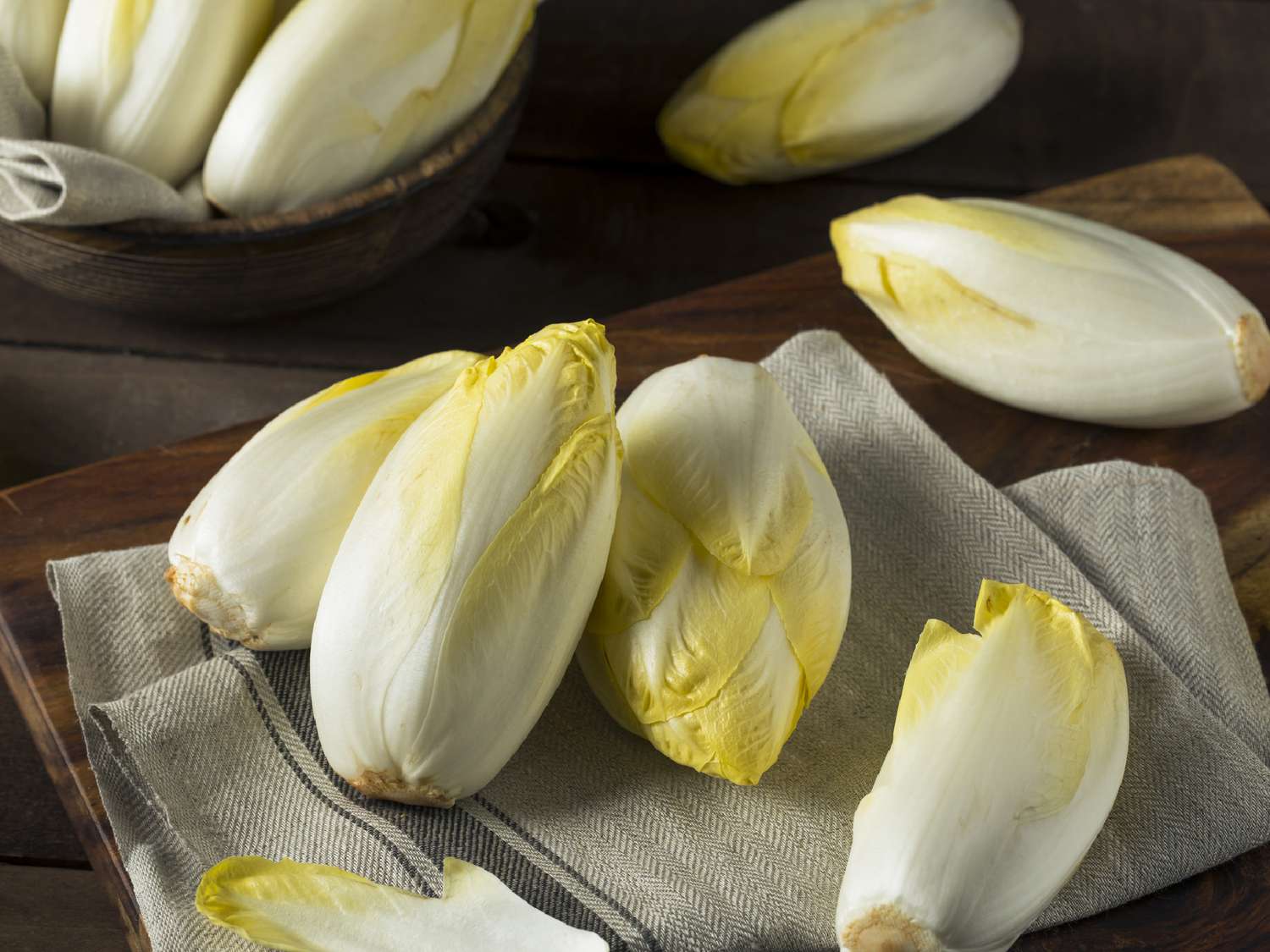Health Benefits of Endive
What are the health benefits of endive?
Endive is a leafy green vegetable that offers several health benefits. Here are some key benefits of including endive in your diet:
- Low in Calories: Endive is low in calories but high in fiber, making it a great choice for weight management. The fiber content helps you feel full and satisfied, which can aid in reducing overall calorie intake.
- Rich in Vitamins and Minerals: Endive is a good source of vitamins and minerals, including vitamin K, vitamin A, vitamin C, folate, potassium, and manganese. These nutrients are important for overall health and well-being.
- Digestive Health: The fiber in endive can help promote healthy digestion by supporting regular bowel movements and feeding beneficial gut bacteria. This can help improve gut health and reduce the risk of digestive issues like constipation.
- Heart Health: Endive is low in sodium and rich in potassium, which can help regulate blood pressure and reduce the risk of heart disease. The fiber content of endive may also help lower cholesterol levels.
- Bone Health: Endive is a good source of vitamin K, which is important for bone health and may help reduce the risk of osteoporosis. Vitamin K is necessary for the proper absorption of calcium, a mineral essential for strong bones.
- Antioxidant Properties: Endive contains antioxidants such as vitamin C and beta-carotene, which help protect cells from damage caused by free radicals. This may help reduce the risk of chronic diseases such as cancer and heart disease.
- Anti-Inflammatory Effects: Some compounds found in endive have anti-inflammatory properties, which may help reduce inflammation in the body and lower the risk of inflammatory conditions such as arthritis.
- Diabetes Management: The fiber content of endive can help regulate blood sugar levels and improve insulin sensitivity, which is beneficial for individuals with diabetes or those at risk of developing the condition.
- Hydration: Endive has a high water content, which can help keep you hydrated and contribute to overall hydration status.
- Versatile and Easy to Incorporate: Endive can be eaten raw in salads or cooked in various dishes. It adds a crunchy texture and slightly bitter flavor to meals, making it a versatile and flavorful addition to your diet.
Overall, endive is a nutritious vegetable that can be a valuable part of a healthy diet. Incorporating a variety of fruits and vegetables, including endive, can help you meet your nutrient needs and support overall health and well-being.
What are the health risks of endive?
Endive is generally considered safe for most people when consumed as part of a balanced diet. However, there are a few potential risks to be aware of:
- Allergies: Some individuals may be allergic to endive or other members of the Asteraceae/Compositae family, which includes ragweed, chrysanthemums, marigolds, and daisies. If you have a known allergy to these plants, you may also be allergic to endive.
- Oxalates: Like many leafy green vegetables, endive contains oxalates, which can contribute to the formation of kidney stones in susceptible individuals. If you have a history of kidney stones, you may want to moderate your intake of high-oxalate foods like endive.
- Gas and Bloating: Some people may experience digestive issues such as gas, bloating, or stomach cramps when consuming endive, especially if they are not accustomed to high-fiber foods. Gradually increasing your intake of endive and other high-fiber foods can help reduce these symptoms.
- Pesticide Residues: Non-organic endive may contain pesticide residues, which could pose a risk if consumed in large quantities. Washing and peeling endive can help reduce exposure to pesticides.
- Interactions with Medications: Endive may interact with certain medications, such as blood thinners or medications for diabetes or high blood pressure. If you are taking any medications, consult with a healthcare professional before consuming endive regularly.
Overall, the health risks associated with endive are minimal for most people when consumed in moderation as part of a varied diet. If you have specific health concerns or dietary restrictions, it’s advisable to consult with a healthcare professional or dietitian.




